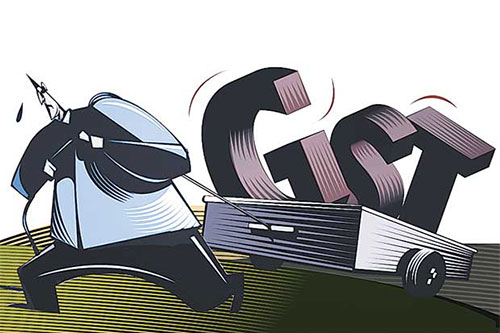Indian cash crackdown hits GST plans
Dated 21st December, 2016
 The move to replace India’s tangle of local and state taxes with a single goods and services levy faces further delay as progress is stalled by the country’s crackdown on “black” money, analysts have warned.
The move to replace India’s tangle of local and state taxes with a single goods and services levy faces further delay as progress is stalled by the country’s crackdown on “black” money, analysts have warned.
Concerns among businesses are growing that the goods and services tax (GST), which has been in the works for more than a decade, is unlikely to be implemented by next April – the target set by the Indian government – and that agreement may not even be reached until 2018.
State and national politicians have been thrashing out the finer points of the measure for the past few weeks without reaching a deal. Meanwhile, parliament, which must vote on related supplementary legislation, has been derailed by an opposition protest against the decision by Prime Minister Narendra Modi last month to scrap 86 per cent of the country’s banknotes.
This has seen the upper house operate just 18 per cent of the time, and the lower house only 14 per cent, according to Eurasia Group.
“April 2017 was a very ambitious deadline anyway and the chances of meeting it always looked slim,” said Shilan Shah, an economist at Capital Economics. “Given what we have seen from the fallout from demonetisation, which has seen the opposition trigger protests throughout the parliamentary session, that looks very unlikely now. We would have more confidence about it being rolled out in 2018.”
Business executives and investors have been waiting for years for a simpler tax system that would put an end to the complex web of local and state taxes, which can often hold goods up at state boundaries for hours.
HSBC has calculated that the reform, which would in theory turn India into a genuine single market for the first time, could add 0.8 per cent to the country’s gross domestic product in the medium term.
The GST was first conceived about 13 years ago but has been stalled on multiple occasions by lack of political agreement. Many states are worried they will end up losing out when the final rates are calculated.
This year, Mr Modi’s government was finally able to pass a constitutional amendmentmaking way for the change, which it did with cross-party support. But this has since been diluted, with a panel of states agreeing not to introduce one tax rate but four — ranging from 5-28 per cent — into which each individual product or service would be classified.
Sasha Riser-Kositsky, an analyst at Eurasia, said: “Given the fresh delays and complexity of the process, implementation is now more likely in July than April.”
He added: “The central government is increasingly likely to compromise with the states on the issue of tax administration as time passes and the spring budget session looms.”
Arun Jaitley, India’s finance minister, has insisted the GST will be rolled out on time. But he has stopped talking so much about the April deadline and has switched his focus to September, when a constitutional measure means states will lose the right to collect taxes.
Mr Jaitley said over the weekend: “I am conscious of [the] fact that the current attitude of some political parties is to delay implementation of [the] GST, but the constitutional mandate is very clear.





